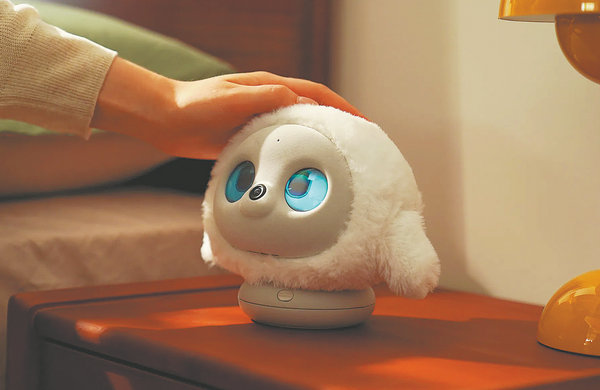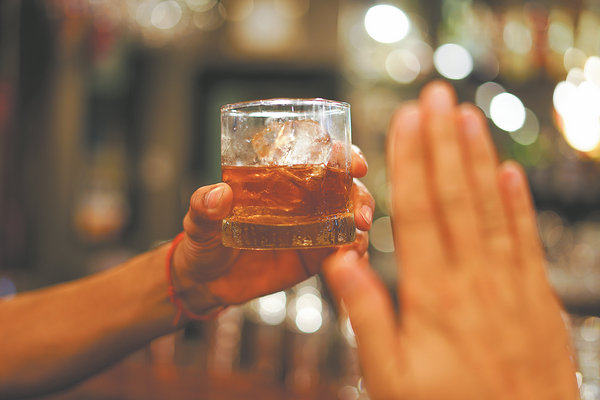
Ropet has a round, fluffy body and large, starry eyes. [Photo provided to China Daily]
Cuddly companion
At the Consumer Electronics Show (CES) in Las Vegas from Jan 7 to 10, a fluffy and stylish AI robot pet caught the spotlight, transforming the stereotypical image of a cold, high-tech machine into a warm, adorable companion that brings joy and comfort.
This cuddly AI robot, named Ropet, was created in 2022 by Verity Ventures Partners. It has a round, plush body with chubby arms and a face adorned with large, starry eyes.
One of Ropet's standout features is its ability to serve as a personalized companion. By using visual recognition and an expansive language model, it adapts to the user's personality, much like a living pet.
For example, Ropet can react to hunger and emotions. When it's hungry, it makes a stomach-grumbling sound to indicate a craving for food, such as bananas or apples. When food is placed in front of it, the robot pet detects it via a camera in its nose and responds with a chewing sound. When its owner appears bored, Ropet will look up and signal for a hug.
As of Jan 14, Ropet has raised HK$2,041,701($262,301.11) on Kickstarter, the world's largest crowd-funding platform, exceeding its initial fundraising goal of $1,285 by 204 times.
The rising demand for emotional companionship reflects the growing population of people living alone and the lack of social connection. "At CES, we're proud to demonstrate how Ropet is reshaping relationships between humans and AI," said He Jianbin, CEO and co-founder of Ropet, in a statement to PR Newswire.

More and more young people are opting for zero-proof drinks instead of alcohol. [Photo provided to China Daily]
Cheers to sobriety
Instead of raising a toast while hanging out with friends, young people are increasingly opting for zero-alcohol beverages. This shift has fueled the rise of the "sober curious" movement.
The movement originated from "Dry January", a campaign launched by the Alcohol Concern charity in the UK in 2014, which encouraged people to abstain from alcohol for the month of January.
Today, it extends beyond just one alcohol-free month to a lifestyle that embraces more periods of sobriety.
This emerging trend reflects a growing focus on health and wellness among young people, who are looking to improve concentration and performance in their studies.
"I was happy to spend my evenings doing yoga or focusing on self-care instead of drinking," said Nora, 23, in an interview with Teen Vogue.
As the sober curious movement resonates with more young people, it has also spurred significant growth in alcohol-free and low-alcohol products. According to a survey by IWSR, which tracks the global beverage industry, the overall volume of zero-proof drinks in the United States rose by 29 percent in 2023.
"With the availability of sophisticated non-alcoholic alternatives, people can fully participate in social rituals while making choices that feel right for them," said Morgan McLachlan, co-founder of De Soi, a nonalcoholic beverage brand, in an interview with USA Today.